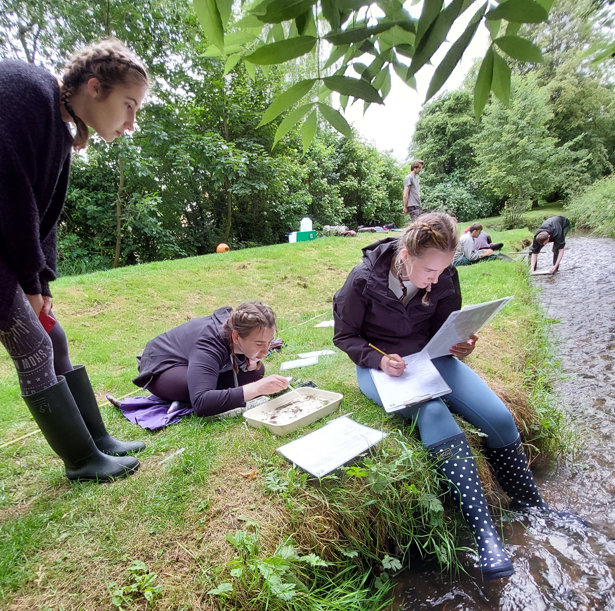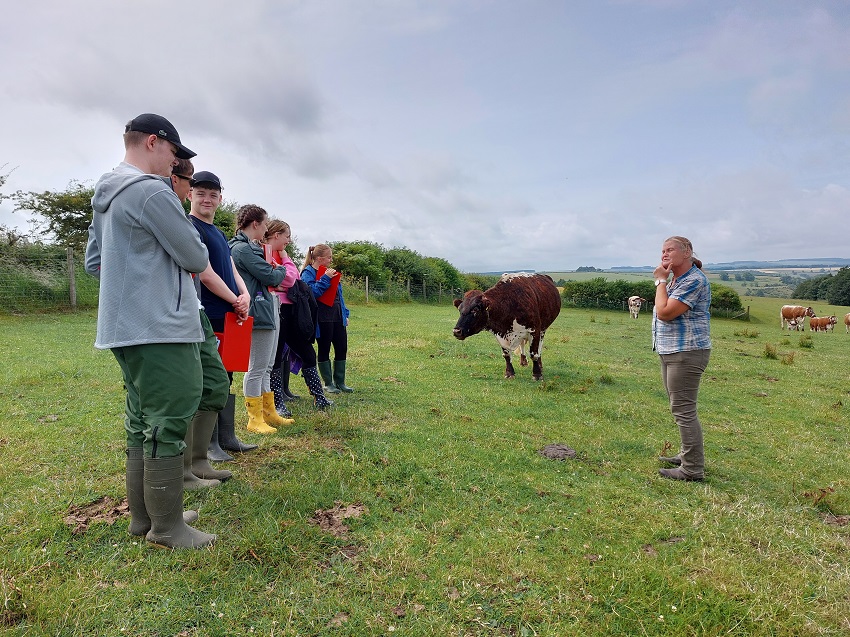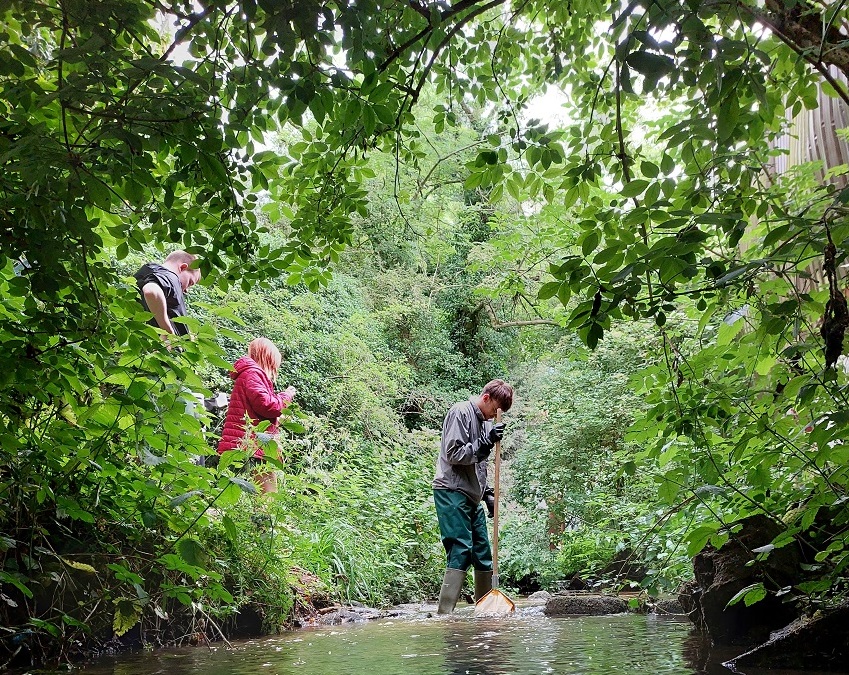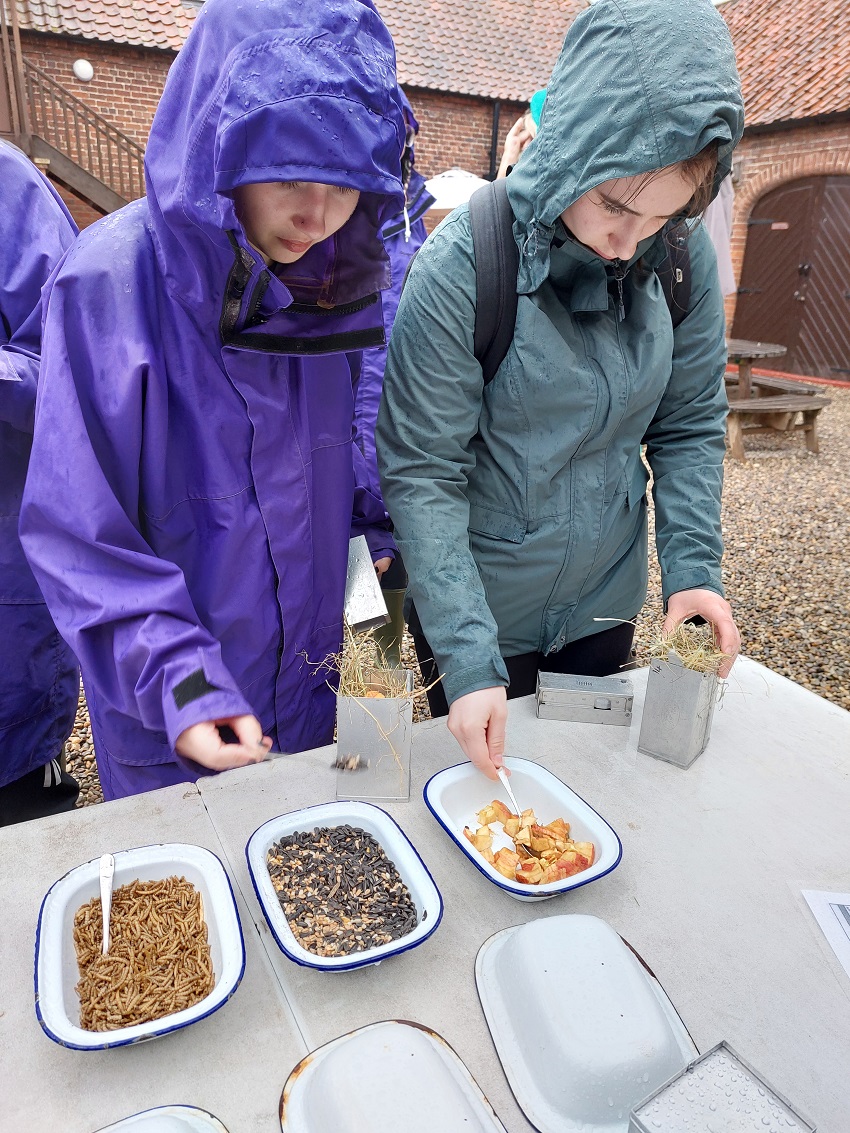Budding biologists from Ron Dearing UTC took part in a three-day residential field trip as part of their A-level studies.
Eight Year 12 students stayed at Cranedale Centre, a residential field studies centre which provides tailored academic field courses for British and overseas students in Malton, North Yorkshire.
The students covered the ecology aspects of their A-level Biology course in detail, including succession, sampling techniques and energy in ecosystems.

Succession is the study of how an ecosystem changes over time and the students visited the nearby Wharram Quarry Nature Reserve to take soil samples and measure plant and animal biodiversity at various locations, helping them to understand the process.
The students also had to plan and carry out their own investigations, which took place at the centre.
Their main study involved sampling two areas of a stream and gathering data to find out whether nitrate levels and oxygen availability had been affected by a waterworks factory close to the stream.
They measured different species living in each part of the stream and carried out statistical analysis to discover if there had been a significant effect.
The students chose how and where to sample, with tutors on hand to show them how to use the equipment or help with identifying different species.
A local farmer explained how she manages her herd, maintaining genetic diversity during breeding and dealing with disease, during the visit. She also spoke to students and answered questions about the grants available for biodiversity maintenance following Brexit and the challenges facing farming in the UK.

Sarah Buchan, Lead Practitioner for Biology at Ron Dearing UTC, said: “It was fantastic field trip and all of the students showed great interest and knowledge, learning so much over the three day visit.
“They also set up an overnight Longworth trap for mammals and a Robinson trap for moths.
“Having discussed the ethics of using such traps, they now have a much deeper understanding of the strategies used by ecologists to monitor populations.
“We saw an owl on our camera trap and four out of our eight traps were triggered by small mammals. The students were able to identify and look at two mice and two voles before releasing them back into the wild.
“The Cranedale Centre provides specialist tutors and equipment, enabling students have an in-depth insight into ecological studies.
“We were lucky to have some glorious weather and it was an excellent experience for all involved.”

Year 12 student Louie Johnson, who took part in the visit, said: “It was fun being in our group and the staff were knowledgeable.
“Learning how to set traps and understanding why we set them in certain ways, so it doesn’t affect habitats and animal health, was really interesting.”
